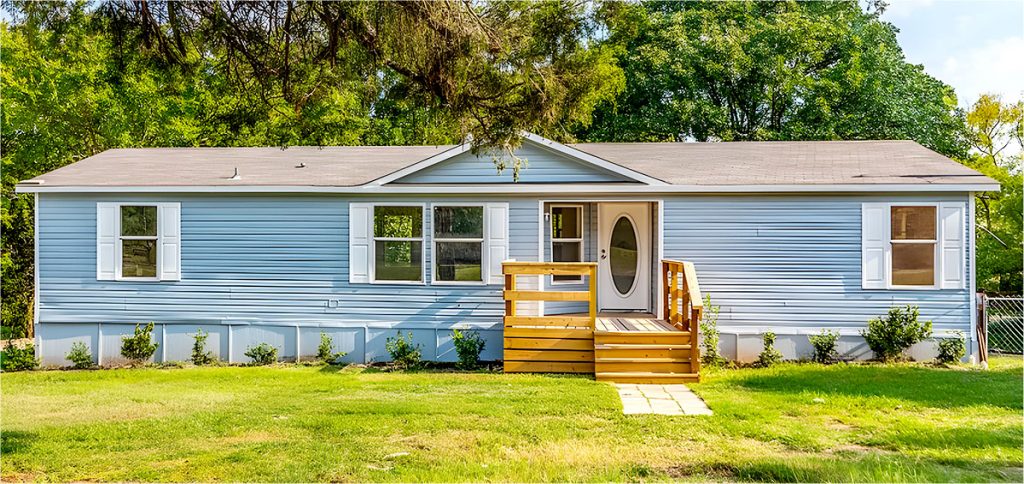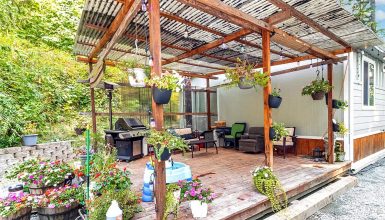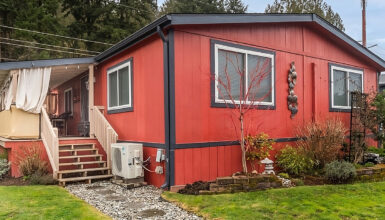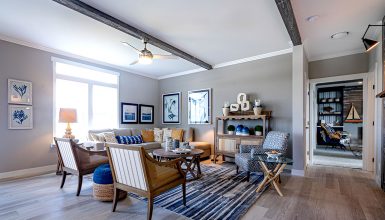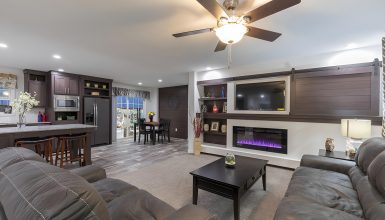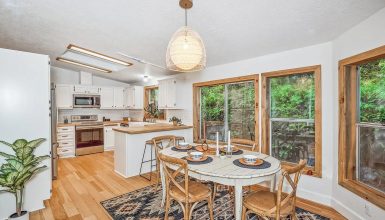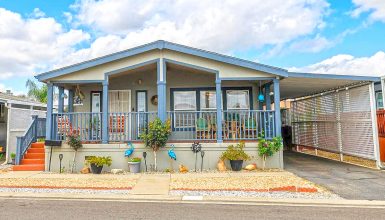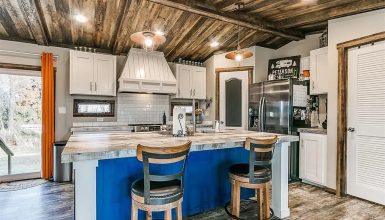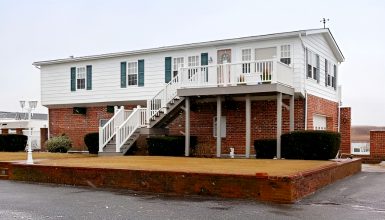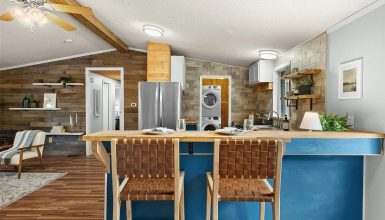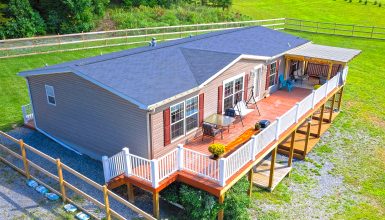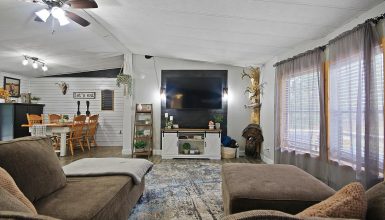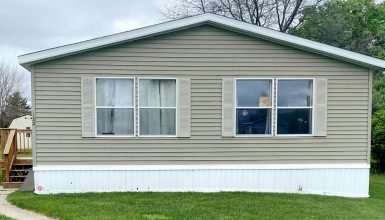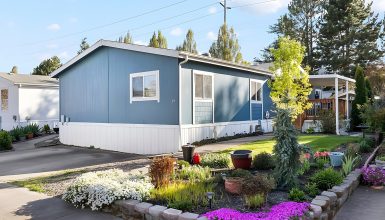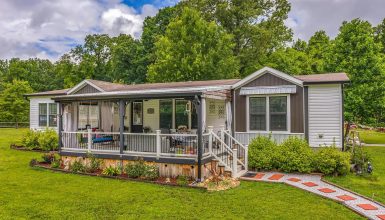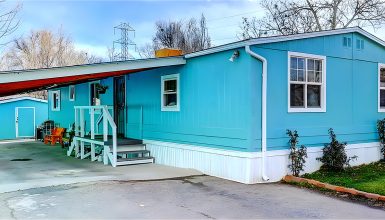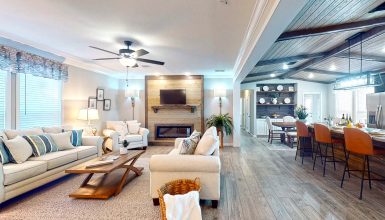You’ve got a dream. A place to call your own. But here’s the million-dollar question: Build a house from the ground up or take the key to a double-wide mobile home? You’re not alone in this. Many are facing this decision, and it’s no small feat. You’ve got costs to think about, timeframes to consider, and a future to plan. Don’t worry; we’re going to break it down for you. Let’s dive into what you need to know to make the right choice. Ready? Let’s get started!
Aspect | Building a House | Buying a Double-Wide |
Around $500,000 or more | Around $130,000 or more | |
Several months to a year | Weeks to a couple of months | |
More options, zoning rules | May require specific land or park | |
Highly customizable | Some customization available | |
Depends on materials and design | Often lower | |
Generally higher | May be lower | |
Traditional mortgage | Mobile home loans, chattel mortgage |
Initial Costs
Regarding costs, the difference between building a house and buying a double-wide mobile home can be pretty eye-opening. Let’s break it down!
Building a standard-size house
Imagine designing your dream home, every nook and cranny. Here’s what you’re looking at:
- Land: You need it. Let’s say $50,000.
- Construction: Think walls, roof, and floors. Around $200 per square foot for a 2,000-square-foot house, that’s $400,000.
- Extras: Landscaping, permits, and all the trimmings. Tack on another $50,000.
- Grand Total? Hold your breath: $500,000.
Buying a double-wide mobile home.
Now, let’s flip the script.
- The Home: A brand new double-wide? Think $90,000.
- Land (if needed): Rent or buy, but let’s budget $30,000.
- Setup: Getting everything in place, maybe $10,000.
- Your Total? A more relaxing $130,000.
That’s a big gap, isn’t it? $500,000 versus $130,000. But here’s where it gets real. Those numbers? They can change. Location, customization, and unexpected twists can make them wiggle.
The bottom line is this: Building offers customization and often more value in the long run. Buying a double-wide? That’s speed and savings now.
What is the right choice? It’s not in the numbers. It’s in what you need, what you want, and what feels like home. That’s where the true value lives.
Construction and Setup Time
Time, oh, time. It waits for no one, especially when you’re eager to move into a new place. Let’s dig into how long it takes to build a house and set up a double-wide mobile home.
Building a house:
- Planning and Permits: First, you’ll need about one to three months just for the planning and permitting phase. Yup, patience is key here.
- Construction Time: Get ready to wait. Building a house from scratch can take anywhere from four to twelve months. Weather, contractors, surprises – they all add up.
Set up a double-wide:
- Choosing Your Home: A few weeks? Maybe a month? This part’s up to you!
- Delivery and Setup: Once you pick it out, it’s a waiting game. Count around three to six weeks to have everything delivered and set up just right.
So, here’s the scoop. Building a house? It’s a marathon, not a sprint. But the customization? It might just be worth the wait.
A double-wide mobile home, on the other hand, is more like a brisk walk. You’ll be sipping coffee on your new porch sooner but with less control over every detail.
Time’s a funny thing. It can feel slow one moment and then fly by the next. Consider how quickly you want to move in, and let’s march on to the next part!
Land Considerations
Land. It’s not just a place to put your feet up. It’s where you plant your dreams, your home. So let’s break down what you need to think about when it comes to land for building a house versus placing a double-wide mobile home.
Land for building a house:
- Location Choices: Want to be near the city, or maybe by a lake? You pick. But keep that wallet handy. Prime spots cost more.
- Preparation: Trees, rocks, slopes? They need to go. That means more money, more time.
- Zoning Laws: Can you build what you want, where you want? Check those local rules.
Placing a double-wide:
- Land Ownership: You can buy land, sure. Or, you can lease in a mobile home community. Your call.
- Prep Work: Less than building, you might still need some.
- Location Flexibility: Want to move later? You can. Try doing that with a traditional house.
So, are you dreaming of that perfect spot in the city with a skyline view? Or maybe a cozy corner in a mobile home park near the mountains? Either way, think hard about the land. It’s not just where you’ll live; it’s how you’ll live. Now, let’s get to the exciting part – your home!
Customization and Design
Let’s talk style. Your style, whether building a house or choosing a double-wide mobile home, design matters. But how much freedom do you have? Let’s break it down.
House design:
- Unlimited Options: It’s all yours to pick from floors to ceilings. Want a purple front door? Go for it!
- Architects and Designers: They can help make dreams come true. But remember, customized dreams can cost big bucks.
- Time: Customization takes time. More time means more money.
Double-wide design:
- Pre-Made Styles: These homes often come with designs already in place. Still, many choices are modern and appealing.
- Some Customization: Depending on the manufacturer, you might change some things. Think counters and cabinets. But less than a house.
- Quick Setup: Less customization means faster move-in. Time is money, friend.
So, here’s the question: Do you want to build a space totally you, every corner? Or are you happy with something ready-made, with a touch of you here and there?
Remember, your home is a canvas. Whether it’s a blank one or one with a base sketch, you still get to paint some of it. And that’s pretty exciting, isn’t it?
Maintenance Considerations
Home sweet home. But wait, what about the upkeep? A house isn’t just walls and a roof; it’s a living space that needs some love and care. Let’s dive into what that means for a traditionally built house and a double-wide mobile home.
Traditional house maintenance:
- Long-Term Stability: Generally, houses are built to last. But like a classic car, they need regular upkeep.
- Maintenance Costs: Think roofing, plumbing, and painting. It can add up.
- Lawn and Garden: If you’ve got the land, you’ve got the landscape. That means mowing, trimming, and planting. Or hiring someone to do it.
Double-wide maintenance:
- Structured Simplicity: Often, these homes are designed for easy care. But they may not have the longevity of a traditional house.
- Lower Costs, Generally: Basic upkeep might cost less, but don’t ignore potential issues like skirting or roof seals.
- Community Maintenance: In a park? Some things might be taken care of for you. That’s less time with a rake and more time with a book.
Maintenance is like a friendship. It takes time and effort, but it’s worth it. Whether you choose bricks and mortar or a mobile haven, understanding what’s needed to keep it fresh and functional is vital. It’s not just about having a place to sleep; it’s about creating a home that feels good to live in. Make sense?
Resale Value and Investment Perspective
Ever thought about your home as a piggy bank? Whether building a house or buying a double-wide mobile home, it’s more than just shelter. It’s an investment. Let’s look at both from a resale and investment angle.
Traditional house resale value:
- Appreciation: Houses usually grow in value. That means if you sell later, you might make a profit.
- Upgrades: Remodel the kitchen, and boost the price. Improvements can mean a higher selling price.
- Location Matters: A hot neighborhood? Big win. A bad one? Not so much.
Double-wide resale value:
- Depreciation: Mobile homes often lose value over time. Think cars, not stocks.
- Land Ownership: Own the land? That could help the value. Just renting the spot? That’s a different story.
- Upgrades, Again: Yes, improvements help here too. But the return might be less.
Remember, buying or building a home isn’t just about today. It’s a long-term game. Think about the future, not just the new curtains or the fresh lawn. We’re talking dollars and cents, investment, and return. It’s a big decision. Understanding the resale value helps you play it smart. Like a financial guru, but with a cozier office. Cool, right?
Financing and Regulatory Considerations
Financing and regulations. Yawn, right? But hold on! This stuff is essential when choosing between building a house or buying a double-wide mobile home. Let’s break it down, real simple.
Traditional house financing:
- Loans: Think traditional mortgage. You might need a specific construction loan first. That covers the building, then you refinance.
- Regulations: Got zoning laws? You bet. Environmental rules? Absolutely. Permits? Don’t even get me started! But don’t worry. Your builder should know the ropes.
Double-wide financing:
- Loans Again: But this time, it’s chattel loans or personal property loans. Different beast. Sometimes higher interest rates, sometimes not.
- Regulations, Part Two: Yes, there are rules for mobile homes too. Safety standards and park rules if you’re renting land. Stuff to keep an eye on.
The key here? Talk to the experts. Lenders, builders, mobile home dealers. They know the game, and they’ll guide you through the maze. Financing isn’t just about borrowing money; it’s about doing it right. And the regulations aren’t just hurdles; they’re there to help you. It might feel like alphabet soup now, but with the right team, it’ll be like reading your favorite book. Now, that doesn’t sound so boring, does it?
Should I Build a House or Buy a Double Wide Mobile Home?
Choosing between building a house or buying a double-wide mobile home? Let’s get down to brass tacks and see what makes each option tick.
Building a house. It sounds dreamy, right? Picking out every last detail. But here’s the real talk: It’s time-consuming and often more expensive. You need the land, the plans, the permits, and the patience. It all adds up. Not to mention, delays and unexpected costs can sneak up on you.
Now, what about a double-wide mobile home? It’s faster, and it’s often less pricey. You still get to choose many details, and it’s not short on space or comfort. Some see it as the budget-friendly path to homeownership. Plus, it’s ready when you are.
Is one cheaper than the other? Usually, the double-wide wins the price tag battle. But it’s not just about money. Think about your lifestyle, timeline, and what you value in a home. That’s where the actual decision lies.
Remember, there’s no one-size-fits-all answer. It’s about weighing the pros and cons and finding what feels suitable for you. You’re not just buying or building a place to live; you’re crafting your future. So take a hard look at both paths and then stride down the one that feels like home.

